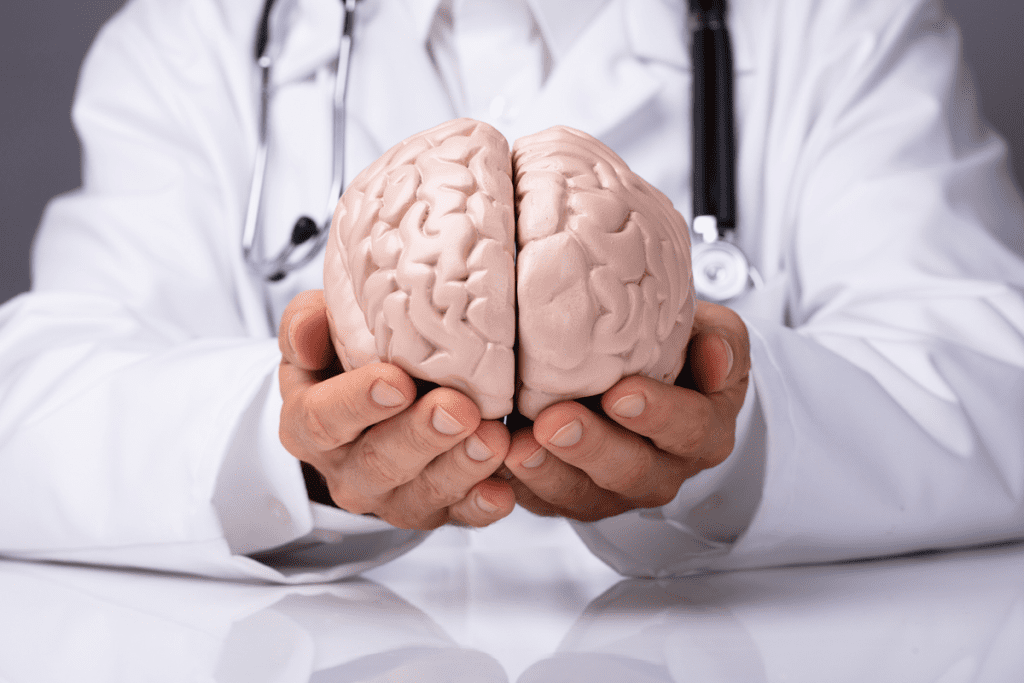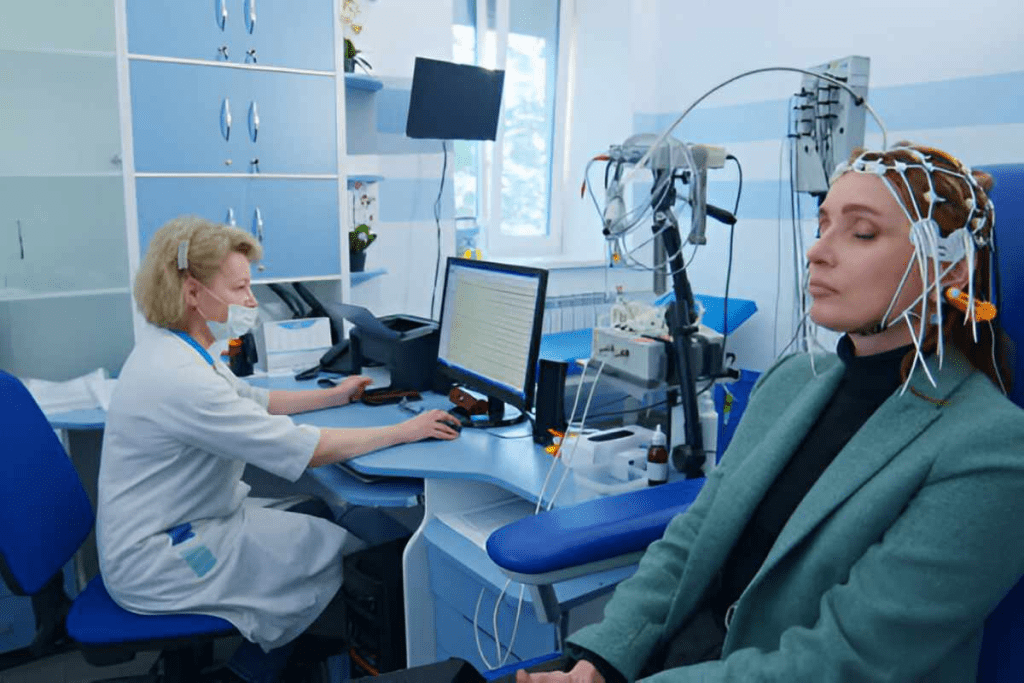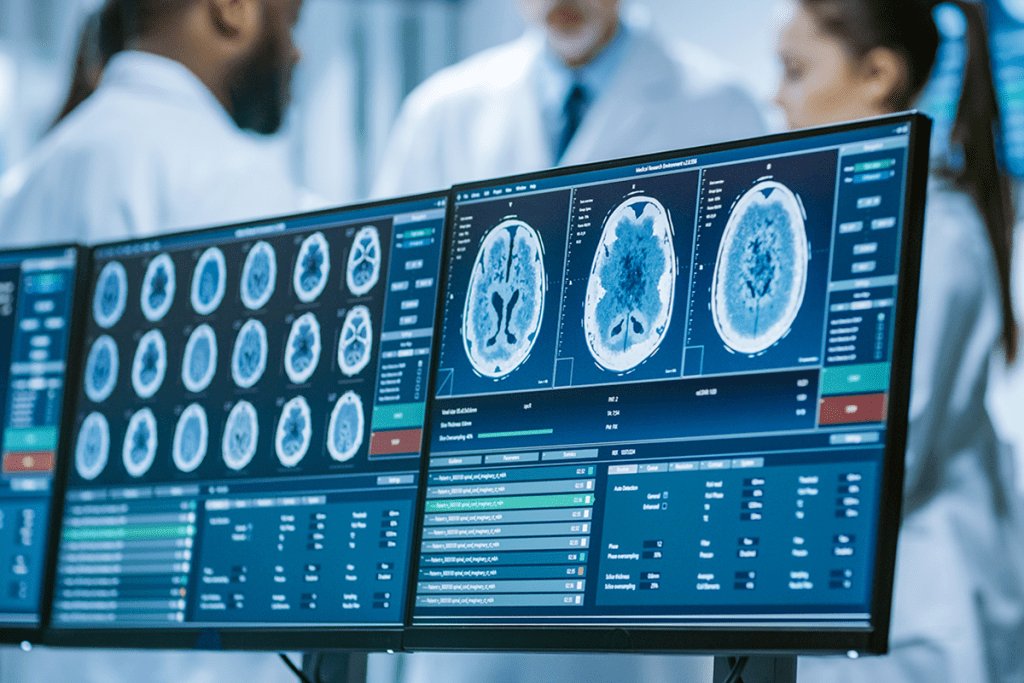Last Updated on November 24, 2025 by

Neuropathologists are key in modern medicine. They focus on diseases of the nervous system, like the brain and nerves. Their skills are critical for spotting neurological cancers and other disorders. Learn about neuropathology and the crucial, powerful specialty focused on diagnosing diseases of the nervous system via tissue.
We count on neuropathologists for accurate diagnoses. These are key for making good treatment plans. By looking at tissue samples, they help us find the root of neurological problems. This lets us give patients the right treatments.
Neuropathologists are key in medical diagnosis, using their skills to help patients. They are experts in diagnosing brain, spinal cord, and nerve issues. This is because neuropathologists are essential in diagnosing complex neurological conditions.

To become a neuropathologist, one needs a lot of education and training. This includes medical school, residency in pathology or neurology, and sometimes a fellowship in neuropathology. This training helps neuropathologists understand complex tissue samples and diagnose neurological disorders accurately.
Neuropathologists use many techniques and tools to analyze tissue samples. They use histopathology, immunohistochemistry, and molecular diagnostics. The use of advanced diagnostic tools enables neuropathologists to provide precise diagnoses. This is important for creating effective treatment plans.
Neuropathologists work with many teams, like neurologists and oncologists. This collaboration is vital in ensuring that patients receive complete care. It helps integrate diagnostic findings with clinical expertise for the best treatment plans.
By working together, neuropathologists and other healthcare professionals can better patient outcomes. The role of neuropathologists in medical diagnosis is complex. It requires technical skills and the ability to communicate well with patients and other healthcare providers.
Neurological cancers and tumors are a big challenge in neuropathology. Experts in diagnosing nervous system disorders look at tissue samples. They aim to accurately identify and classify these conditions.
Getting the diagnosis right is key. It affects the treatment plan and how well the patient does. Neuropathological exams study tumor details like cell type and growth. This helps figure out the tumor’s type and how serious it is.

Brain tumors can be either benign or malignant. They are sorted based on cell type and other features. Advanced tests like histopathology and molecular analysis help us classify them correctly.
Knowing the type of brain tumor is important. It helps decide the best treatment, which could be surgery, radiation, or chemotherapy.
Spinal cord neoplasms are tumors in the spinal cord or nearby areas. They can be primary, starting in the spinal cord, or secondary, spreading from elsewhere.
To diagnose these tumors, we use imaging and neuropathological tests on biopsy samples. Accurate diagnosis is key for choosing the right treatment.
Peripheral nerve tumors come from nerves outside the brain and spinal cord. They can be benign or malignant. Symptoms vary based on the tumor’s location and size.
We diagnose these tumors through clinical checks, imaging, and histopathology. Knowing the tumor’s type and details is essential for treatment planning.
Neuropathologists are key in diagnosing and treating neurodegenerative disorders. These diseases affect millions, leading to a lot of suffering and death. It’s important to know how these diseases work to find better treatments.
Parkinson’s disease causes tremors, stiffness, and slow movement. Neuropathologists look at brain tissue to find Lewy bodies and see where dopaminergic neurons are missing. They say Lewy bodies are key to diagnosing Parkinson’s disease.
“The diagnosis of Parkinson’s disease relies heavily on the identification of characteristic neuropathological features.”
Studying Parkinson’s disease helps us understand it better.
ALS is a disease that slowly kills motor neurons. Neuropathologists check tissue samples for signs of motor neuron damage. They are vital in finding new ways to treat ALS.
By studying tissue, neuropathologists help find the causes of ALS. This helps in making accurate diagnoses and aids in research.
Neuropathologists are very important in fighting neurodegenerative diseases. Their work helps us understand Parkinson’s and ALS. This knowledge is key to creating new treatments.
Neuropathologists are key in diagnosing and treating nervous system issues. These problems can come from infections or the body’s immune system attacking itself. They can be caused by bacteria, viruses, fungi, or autoimmune diseases.
Meningitis and encephalitis are serious. They cause inflammation in the brain and spinal cord’s protective layers and the brain itself. Neuropathologists use tests like cerebrospinal fluid analysis and imaging to find the cause.
To diagnose these conditions, doctors look at symptoms, lab tests, and images. We use molecular diagnostic techniques to pinpoint the infection’s cause.
Multiple sclerosis is a chronic disease where the immune system attacks the central nervous system. Neuropathologists study tissue samples to understand and diagnose this disease.
Autoimmune diseases like multiple sclerosis happen when the immune system attacks the body’s own tissues. We use advanced tests to identify and differentiate these conditions.
Prion diseases are rare, fatal conditions caused by misfolded proteins. Neuropathologists are essential in diagnosing these through brain tissue examination.
Diagnosing rare neurological infections, including prion diseases, is challenging. We use specialized methods to identify and differentiate these conditions from other neurological disorders.
Neuropathology is a key part of diagnosing neurological diseases. It faces both challenges and opportunities. As we learn more about these diseases, neuropathologists play a bigger role.
The field is facing a big challenge: a shortage of neurology specialists in the US. Studies show there won’t be enough experts soon. This highlights the need to attract and keep talent in neuropathology.
The aging population and more cases of neurological diseases mean more need for neuropathologists. As people get older, diseases like Alzheimer’s and Parkinson’s will become more common. This will put more pressure on the workforce.
To fix this, we must promote neuropathology jobs and offer good neuropathologist salaries. We also need to improve education and training in neuropathology. This will help build a strong team of professionals.
Neuropathologists are key in research that helps develop treatments. They study the causes of neurological diseases. This research is vital for finding new treatments.
By pushing the boundaries of neuropathological research, we can find new ways to treat diseases. Using new technologies and methods in research is very promising for the future.
Neuropathologists are key in diagnosing and managing neurological conditions. They help us understand complex disorders like neurodegenerative diseases and neurological cancers. Their work is vital for advancing our knowledge in these areas.
Neuropathology is a specialized field that needs a deep understanding of the nervous system. A neuropathologist is a medical doctor with extensive training. They diagnose neurological conditions by examining tissues and cells.
Neuropathology studies diseases affecting the nervous system, including the brain and spinal cord. As the field grows, neuropathologists will keep developing new treatments. Their work is essential for improving patient care and shaping the future of neurological care.
Neuropathology is the study of diseases in the nervous system. This includes the brain, spinal cord, and nerves. Experts in this field look at tissue samples to diagnose and understand neurological conditions.
Neuropathologists are key in diagnosing neurological conditions. They look at tissue samples and use various techniques to diagnose cancers, neurodegenerative disorders, infections, and autoimmune conditions.
Neuropathologists get a lot of training. They study hard in college and then in postgraduate programs. This training helps them become experts in diagnosing and understanding neurological conditions.
They play a big role in understanding and diagnosing neurodegenerative disorders. By examining tissue samples and using different techniques, they help diagnose diseases like Alzheimer’s and Parkinson’s.
Neuropathologists are very important in diagnosing and managing nervous system conditions. They examine tissue samples and use various techniques to diagnose and manage conditions like meningitis and encephalitis.
The demand for neuropathologists is growing. They are essential in research and treatment development. Their work helps advance neurological care.
Neuropathologists work with neurologists, oncologists, and surgeons. They team up to provide the best care for patients with neurological conditions.
A neuropathologist’s salary varies based on location, experience, and institution. But, they are well-paid for their expertise.
They diagnose many conditions, including brain tumors, spinal cord neoplasms, and peripheral nerve tumors. They also diagnose neurodegenerative disorders and conditions like meningitis and encephalitis.
Subscribe to our e-newsletter to stay informed about the latest innovations in the world of health and exclusive offers!